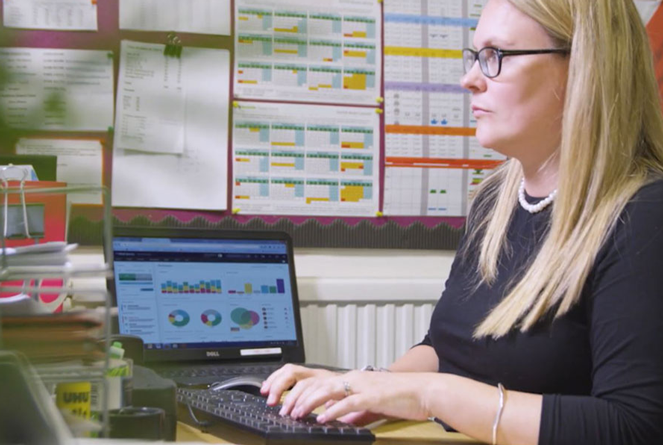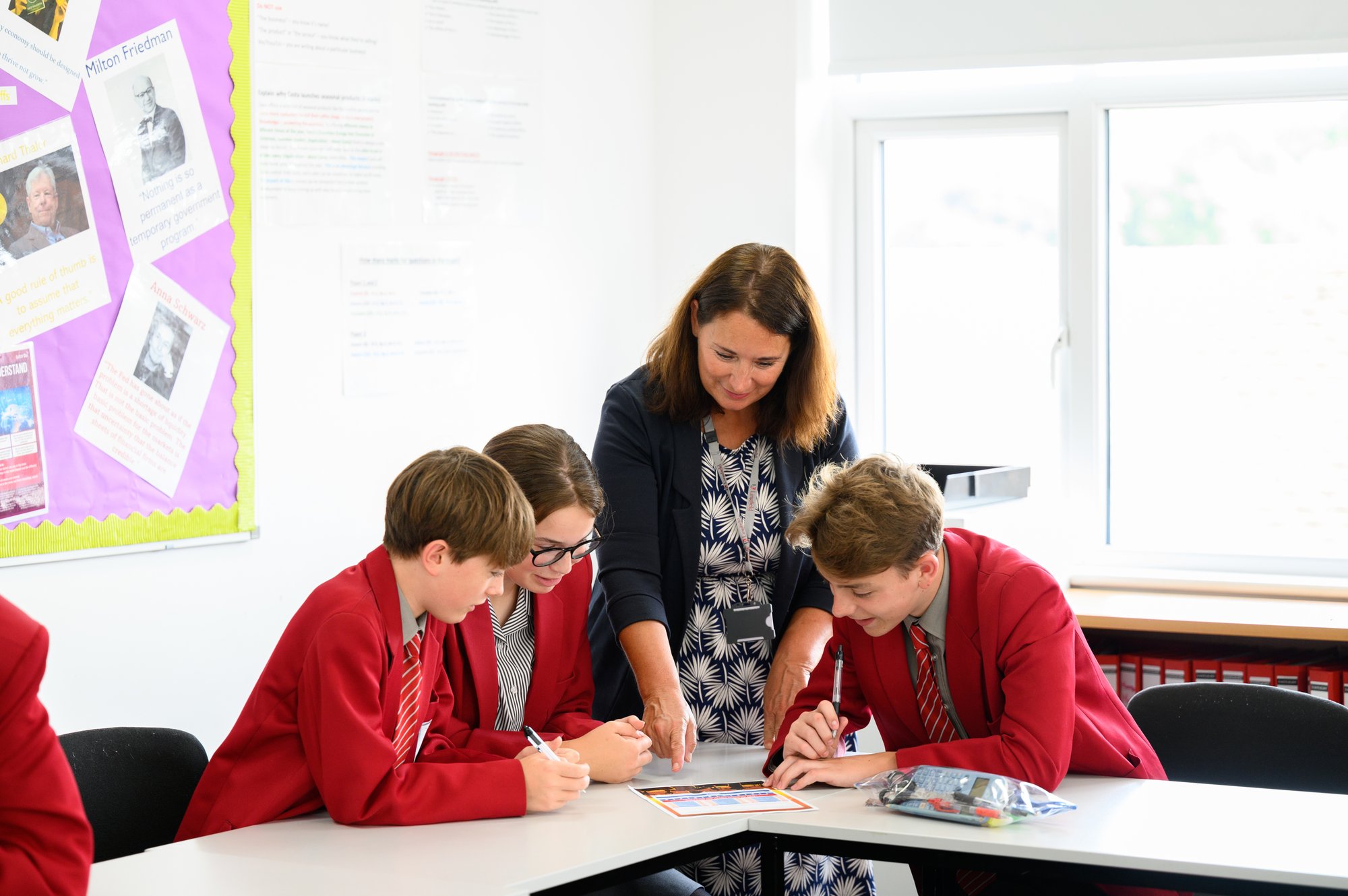Ofsted Annual Report 2022 - 2023
As you are undoubtedly aware, Ofsted published its Annual Report for the 2022 – 2023 academic year last week. The report focuses on several areas: Schools, SEND and Alternative Provision, Early Years and Childcare, and Teacher Development. In this short series of blogs, we draw your attention to some of the key points for schools and suggest ways in which our experts at Juniper Education, the company which looks after you so you can look after our children, may be able to support you. We begin by focusing on what the report says about the curriculum.
Strengths
The report highlights several positive findings from the Ofsted inspections carried out in 2022- 2023. Subject reports published recently highlight how the curriculum has moved on since a similar series of reports was published some 10 or more years ago. They conclude, for example, that 'the position of history in schools is much more secure now than it was 12 years ago'. A similar picture was found across most other areas of the curriculum, with foundation subjects increasingly valued by schools. Most schools now specify the knowledge and skills pupils will learn over time and are aware of the need to build on prior learning. New learning is embedded, clearing the way for more complex content and knowledge to be accessed. This led to the conclusion that the overall picture across national curriculum subjects is strongly positive.
Reading is seen as an area of strength, particularly in primary schools where the teaching of reading has improved markedly. Pupils access a broad, well-planned reading curriculum, and most pupils learn to read fluently. Schools have invested in training to ensure that reading is taught well. Other subjects which have improved significantly over the past few years include history and music (in primary schools).
It is good to see the achievements of dedicated school leaders and hard-working teachers recognised within the report.
Curriculum: Areas for development
The Annual Report also highlighted several areas with scope for further improvement. We will touch on just a few of those here:
- Teaching of reading in secondary schools - is often slow to identify and address gaps in reading ability. They also fail to understand that pupils who are struggling with reading, often with a limited vocabulary, will find it hard to access many areas of the curriculum. There is a bank of research demonstrating how vocabulary and educational attainment are linked – pupils with a poor vocabulary do less well in exams and in education generally. At Juniper, we are passionate about these aspects of learning, running courses for teachers and support staff working with struggling readers and pupils who need to develop their vocabulary. To find out more, visit www.junipercpd.org or contact us at training@junipereducation.org.
- Writing and spoken language – according to the report, many schools do not have a well-sequenced curriculum for writing and spoken language. Assessments do not always identify gaps in learning, and opportunities to develop fluency are not always given. There are commercially available programmes which support the teaching of writing, but many schools choose to devise their own. However, it is important to identify a clear sequence in learning. Speaking and listening often appear to be a poor relation between reading and writing. Still, time spent verbalising what might be written, acting out a story, developing a conversation orally or exploring relevant vocabulary can significantly improve the quality of writing which is produced. Visit the website above or contact us at training@junipereducation.org to learn how we can help you in this area. In the spring term, our termly Primary English Subject Leader update will focus on writing, including strategies and ideas for teaching.
- Physical education – the report concluded that, although most schools gave adequate time to teaching PE, the curriculum in many schools lacks coherence. This is because schools often provide a wide range of activities without carefully considering what pupils should learn through them. At one time, I taught a lot of music, planning many lessons in which pupils had great fun playing musical instruments and making and responding to music in various ways. I was then asked to lead on a new initiative, Assessment for Learning (this was many years ago!). That made me totally rethink the way I taught music, moving away from What are we going to do? to What do I want the pupils to learn this lesson, this unit of work, this term? We need to encourage teachers to think in this way about PE too.
- Religious education – the report states that RE in schools is generally of poor quality. Although it is a statutory subject, schools often consider RE as an afterthought. Many schools do not meet statutory requirements - although not covered in the National Curriculum, all schools must teach RE, the curriculum being determined locally by the Standing Advisory Council on Religious Education (SACRE). The rigour and attention that many schools have devoted to teaching foundation subjects now need to focus on the teaching of RE. In particular, developing a coherent, well-sequenced curriculum, ensuring all teachers have the knowledge and skills they need to teach the subject and ensuring that the impact of what is taught is monitored carefully will make a good start to improvements in this area.
Teacher development
This report section begins with the statement: Teachers’ professional development is crucial to a high-quality education system. When teachers base their everyday practice on an up-to-date, coherent and integrated professional knowledge base, this benefits all pupils and learners. School staff have access to a wide range of training opportunities focusing on the curriculum, mental health, and well-being. However, the impact of the training is not always clear.
Ofsted recently published the findings from Year One of their teacher development review, commissioned by the DfE, in which they surveyed nearly 2000 teachers and visited several schools. They found that workload pressures often hindered teachers from accessing development opportunities. In particular, high levels of staff absence and the need for lesson cover sometimes prevented teachers from attending planned face-to-face training.
Support from the education experts
Here at Juniper Education, we offer a wide range of CPD for teachers and other school team members. We try to make this training as accessible as possible, offering various times for live training and on-demand and self-directed learning modules. We listen to leaders and teachers to determine their current needs and plan our CPD programme accordingly. The report states that leaders and teachers were often unimpressed with the quality of their recent training and development. Our evaluations demonstrate that 99% of delegates rate our CPD as good or better.
Contact us to explore how we can look after you, so that you can look after our children.
Look out for our next blog in this series, which explores what the report says about Safeguarding, SEND and other aspects of education.


/Primary%20school%20.jpg?width=2000&name=Primary%20school%20.jpg)








.png?width=940&height=788&name=Lingfield%20College%20Case%20Study%20(5).png)
-1.png?width=1000&height=833&name=National%20Association%20of%20Head%20Teachers%20(3)-1.png)
-3.png?width=1080&height=1080&name=Untitled%20design%20(10)-3.png)





